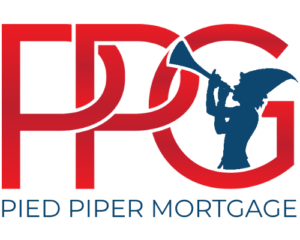Managing utility costs is a vital part of homeownership, and small changes can lead to significant savings over time. At Pied Piper Mortgage, we aim to provide homeowners with the best tips to reduce their utility expenses without compromising on comfort. Here’s how you can save money on your utilities:
1. Conduct an Energy Audit
An energy audit identifies areas where your home may be losing energy. Many local utility companies offer free or low-cost energy audits. An audit typically includes:
- Checking for air leaks around doors and windows
- Inspecting insulation levels in your attic, walls, and floors
- Evaluating heating and cooling systems
- Examining lighting and appliance efficiency
2. Upgrade to Energy-Efficient Appliances
Modern appliances are designed to use less energy. Consider replacing older models with energy-efficient ones. Look for the ENERGY STAR label, which ensures the appliance meets energy efficiency guidelines set by the U.S. Environmental Protection Agency. Key appliances to consider upgrading include:
- Refrigerators
- Dishwashers
- Washing machines
- Air conditioners
- Water heaters
3. Use a Programmable Thermostat
A programmable thermostat can help you save on heating and cooling costs by adjusting the temperature automatically based on your schedule. Set it to lower the temperature while you’re away from home or sleeping, and increase it when you’re home and awake. Smart thermostats can be controlled remotely, offering even greater convenience and savings.
4. Seal Air Leaks
Air leaks in your home can lead to significant energy loss. Common areas where leaks occur include:
- Around windows and doors
- Electrical outlets
- Attic hatches
- Ductwork
Use weatherstripping or caulk to seal these leaks and prevent warm or cool air from escaping.
5. Improve Insulation
Proper insulation is crucial for maintaining a comfortable temperature in your home. Ensure your attic, walls, and floors are well-insulated. This reduces the need for heating and cooling, resulting in lower utility bills. Insulation upgrades can often pay for themselves in energy savings within a few years.
6. Reduce Water Usage
Lowering your water consumption can significantly impact your utility bills. Simple steps to reduce water usage include:
- Installing low-flow showerheads and faucets
- Fixing leaky faucets and pipes
- Using a water-efficient dishwasher and washing machine
- Taking shorter showers
7. Switch to LED Lighting
LED bulbs use up to 75% less energy than incandescent bulbs and last up to 25 times longer. Replace traditional bulbs with LED alternatives in your home to reduce electricity usage and maintenance costs.
8. Unplug Unused Electronics
Many electronics draw power even when turned off, known as “phantom loads” or “vampire energy.” Unplug devices when they’re not in use, or use power strips to easily turn off multiple devices at once.
9. Utilize Natural Light and Ventilation
Maximize the use of natural light during the day to reduce the need for artificial lighting. Open windows and use fans to promote natural ventilation and reduce reliance on air conditioning.
10. Consider Renewable Energy Sources
Investing in renewable energy sources, like solar panels, can drastically reduce your utility bills. While the initial cost can be high, many states offer incentives and rebates to help offset the expense. Over time, the savings on your energy bills can make this a worthwhile investment.
By implementing these tips, you can make your home more energy-efficient and reduce your utility costs. At Pied Piper Mortgage, we are committed to helping you save money and create a more sustainable living environment. For more homeownership tips and financial advice, visit our blog or contact one of our mortgage experts today.
For personalized mortgage advice or to learn more about refinancing options that can further optimize your savings, reach out to Pied Piper Mortgage. Our team is here to help you achieve your financial goals and make the most of your home investment.




